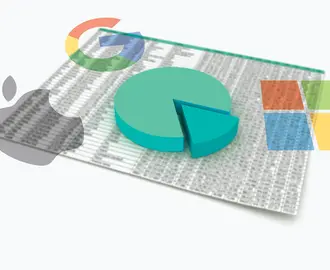Accounting
How generative AI can make accountants more productive
What you’ll learn:
- AI amplifies accounting experience: In a study of accountants, the most experienced used AI strategically to boost performance gains.
- Productivity and reporting quality both improve with AI: Working with AI-enabled software helped accountants support more clients and finalize monthly statements sooner.
- Expertise still matters: Human judgement is needed to evaluate AI’s work and avoid errors.
A new study confirms what some accountants may have already known: Generative artificial intelligence software is making them more productive and, in many cases, improving the quality of their reporting.
MIT Sloan assistant professor along with Stanford University’s Jung Ho Choi, partnered with a company that makes AI-based accounting software so they could analyze hundreds of thousands of transaction entries from 79 small and midsize firms. They also surveyed 277 accountants, about 10% of whom were using AI in their daily routines; another 10% had not experimented with AI at all.
A majority of the accountants surveyed felt that AI provided efficiency benefits and has the “potential to reduce repetitive work and improve analysis,” Xie and Choi write. And a majority felt that it would increase their job satisfaction, as it pertains to productivity, work-life balance, and their careers. While the research occurred early in the study of generative AI and accounting, its findings suggest practical implications for accountants, managers, and accounting firms.
Clear productivity and quality gains
The software in the study automates routine work and can help accountants make decisions. For example, it can classify transactions, summarize contracts, and detect anomalies in bookkeeping. Accountants using the software saw greater productivity on average, including:
- An increase in weekly client support.
- A “reallocation of approximately 8.5% of accountant time from routine data entry toward high-value tasks such as a business communication and quality assurance,” the researchers write.
Those same accountants also saw improved financial reporting quality, seen as:
- A 12% increase in general ledger granularity (a measure of reporting detail).
- A 7.5 day reduction in monthly close time.
“Essentially, firms embracing AI are able to finalize their monthly financial statements almost within two weeks after month-end, whereas others take over a week longer,” Xie and Choi write.
The researchers found that many accountants were using the tool to handle routine work, freeing up time for analysis and work with clients. They also found that “more experienced accountants tend to leverage the AI system more strategically and reap larger performance gains from it.” It’s possible that the more experienced accountants are better at interpreting the confidence scores the AI software applies to its own recommendations and thus are more likely than their less-experienced peers to intervene when the scores are low, they write.
Concerns about AI accuracy
Many accountants surveyed said they had concerns about using the AI software, including 62% who were worried about errors and accuracy in AI-generated reporting. Accountants were also concerned about data security issues and job displacement. One area of concern for the researchers: “When AI suggests diverging categories for uncertain transactions, accountants tend to still follow AI’s suggestions,” introducing the possibility of errors attributable to AI.

Leading the AI-Driven Organization
In person at MIT Sloan
Register Now
What does this mean for accounting firms?
For managers: When integrating AI-assisted accounting systems, recognize that the technology works best when it augments your existing experts. Accounting isn’t just following a set of rules, Choi said. As powerful as AI is, it isn’t always able to consider all of the context around information. For example, when AI confidence scores are low, judgment from experienced accountants is needed.
For accountants: Consider using AI to automate much of the grind and boost job satisfaction. More experienced accountants may see even greater gains.
“There’s that really famous meme, ‘What I want AI to do is do my laundry so that I can write poetry, not write poetry so I can do laundry,’” Xie said. “In accounting, there’s laundry and there’s poetry.” Make the laundry — inputting and processing data, for example — more efficient and you free up time and space for the poetry, she said. That means more time for client interactions, financial forecasting, higher-level thinking, and the like.
“I think intrinsically, as human beings, we want to do creative judgment-based work,” Xie said.
For the profession: Getting AI and accountants to work together well will require AI literacy training, and clear oversight standards are needed to scale the net gains of AI. Xie and Choi’s research examines AI in accounting as it is employed now, and it poses questions for future work: How should organizations prepare for a generation of accountants who have never done accounting work without AI? What tasks or roles will still exist? And how should managers think about organizational structure for the accounting function?
Read the research
The full research paper, “Human and AI in Accounting: Early Evidence from the Field,” discusses AI adoption patterns, task reallocation, and how experienced accountants use AI confidence scores.
This article is based on work by Chloe Xie, an assistant professor of accounting at MIT Sloan. Her research focuses on capital market imperfections — such as limits to arbitrage, deviations from von Neumann-Morgenstern preferences, and criminal behavior — and how these frictions shape the information environment. Her research also considers how these frictions affect disclosure decisions, asset pricing, investor decision-making, and non-financial market outcomes.





